commentary Commentary
Commentary: Malaysian king steers a country through rough waters
In the eyes of ordinary Malaysians, the Agong has shepherded the country through some of its toughest tests in recent days amid the pandemic, says Serina Abdul Rahman.
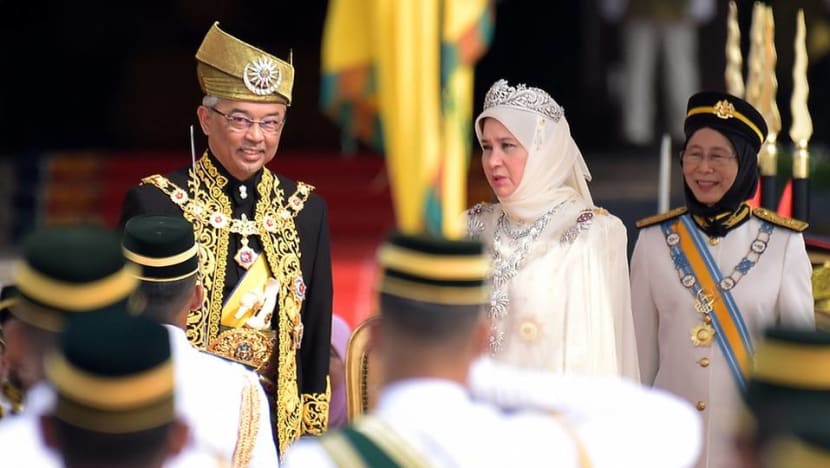
Malaysia's King Sultan Abdullah Ri’ayatuddin Al-Mustafa Billah Shah smiling beside Raja Permaisuri Agong Tunku Azizah Aminah Maimunah Iskandariah during his royal coronation on Jul 30, 2019. (Photo: AFP/Malaysia's Department of Information/Farhan Abdullah)
JOHOR: As weary Malaysians struggle to cope with another wave of the COVID-19 pandemic, the Agong’s call for political unity and refusal to entertain bids to grab political power over the last few weeks was a welcome reprieve.
It was barely a month ago that the Palace received an Anwar Ibrahim claiming to have enough supportive Members of Parliament to unseat Prime Minister Muhyiddin Yassin.
And mere weeks since the Agong saw an anxious Muhyiddin requesting emergency powers.
Where these recent political developments sat poorly with a disenchanted population already reeling from the economic and social impacts of the virus, they appeared self-serving at a time when average citizens and medical frontliners were barely keeping it together.
In Malaysia’s constitutional monarchy, it is often the case that when politicians are weak or seen as ineffectual that many look towards the royal houses for leadership – and these two episodes were deftly managed.
READ: Commentary: Always almost there - will Anwar Ibrahim ever become Prime Minister of Malaysia?
READ: Commentary: UMNO’s in no shape to play kingmaker in Malaysia
THE ROYAL HOUSES AND THE COMMON MAN
The Yang di-Pertuan Agong is a rotational position among Malaysia’s nine sultans held for five years each time.
The current incumbent, Al Sultan Abdullah Al-Haj of Pahang, enjoys strong support from the common man.
This is a leader who stopped his royal motorcade to help those in an accident last year and was once sighted queueing for his meal at KFC.
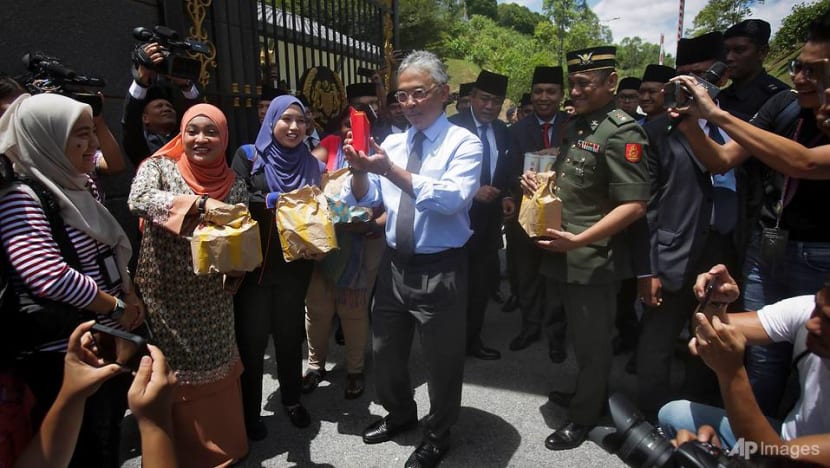
He has also broken royal protocol to reach out personally to journalists to offer them McDonald’s when the press camped outside the Palace for days in February after Malaysia was hit by political crisis following the sudden resignation of then Prime Minister Mahathir Mohamad.
In rural Malaysia, especially in Johor, it is little wonder the royal institution is deeply respected, and its preservation an unquestionable part of the country’s heritage.
Politicians such as Mahathir have in the past taken steps to curtail the influence of royals by amending Malaysia’s constitution to absolve them of decision-making powers.
However some of these amendments have been revised to provide some leeway for a reinstatement of their discretionary powers such as with Article 150, which gives the Agong powers to declare a national emergency.
READ: Commentary: Malaysia’s political chess games are not over
READ: Commentary: The never-ending political game of Mahathir Mohamad
For many Malaysians, the royal houses serve as a welcome check-and-balance to politicians’ actions – a point the Tunku Mahkota of Johor had made in a recent interview.
The Conference of Rulers, for example, is the coming together of kings and governors of the 13 states in important discussions on issues of national importance, such as the one quickly convened when Muhyiddin requested the imposition of a state of emergency and was quickly turned down.
These institutions serve an important purpose of providing a steady keel that steers Malaysia through uncertain waters during such troubling times.
MALAYSIANS ARE DISILLUSIONED WITH COVID-19 DEVELOPMENTS
You must remember the context in which these political challenges took place.
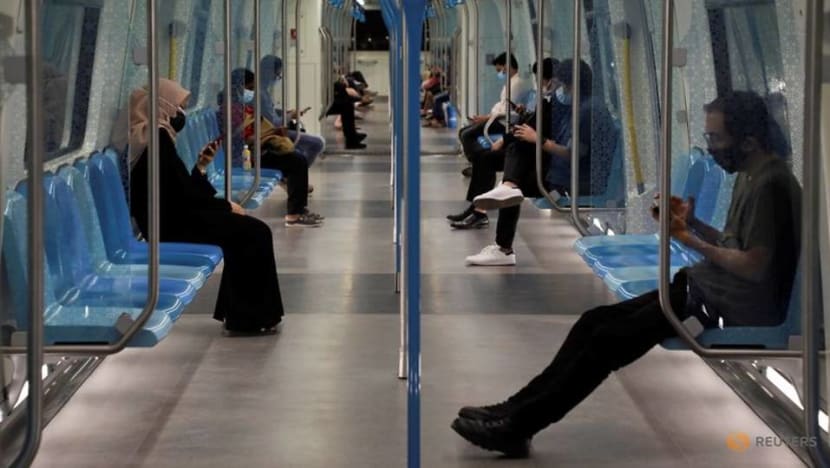
The role of the royals in navigating those tricky situations could not have been more important, at a time when Malaysia was jolted by the shock of consistent, four-digit daily new infections, myriad active clusters and several areas under Conditional Movement Control Orders (CMCO).
The country’s initial success in containing the pandemic had been largely attributed to the decisive, evidence-based plans of widely respected Director-General of Health, Dr Noor Hisham Abdullah, and the people’s willingness to abide by restrictions.
The recent spike, however, has been blamed on politics and politicians. Where a large chunk of cases are in East Malaysia, most have been linked to political rallies and related gatherings in the build-up to the Sabah elections, which had been seen as an unnecessary grasp at power by ex-Chief Minister Musa Aman, who claimed that he had attained enough support to form a new state government in July.
READ: Commentary: Sabah state election ignites fresh Game of Thrones jostling in Malaysian politics
But the startling news of huge gaps in East Malaysia’s measures to control the outbreak suggest leaders have allowed politicking to get in the way of effective governance.
The lack of a required quarantine period, travel restrictions and mandatory swab tests for travellers, meant that many returning to Peninsula Malaysia after casting their ballots enabled the virus to spread on both parts of the country across the South China Sea.
All this was bad enough. Then came revelations that Khairuddin Aman Razali, Minister of Plantation and Commodities, was only given a smack on the wrist for not undergoing quarantine upon his return from Turkey.
READ: Commentary: What struggling Malaysians need from this Budget is a stronger safety net – and higher taxes
In spite of the skyrocketing COVID-19 infection number and its undeniable link to the Sabah elections, Sarawak politicians have continued to discuss holding state elections by early 2021, even though it can be delayed until August of that year.
Malaysians reading reports of preferential treatment of VIPs and politicians, never-ending political posturing and power plays between political parties are exasperated, and simply do not have the bandwidth to organise themselves to counter political developments precipitating a crisis in government.
EXHAUSTED REALITIES ON THE GROUND
With 745,100 Malaysians unemployed (a 4.7 per cent unemployment rate) and many still struggling to pay rent, put food on the table, and service loans with the lifting of the loan moratorium, the dark cloud of COVID-19’s sudden revival has added to the gloom.
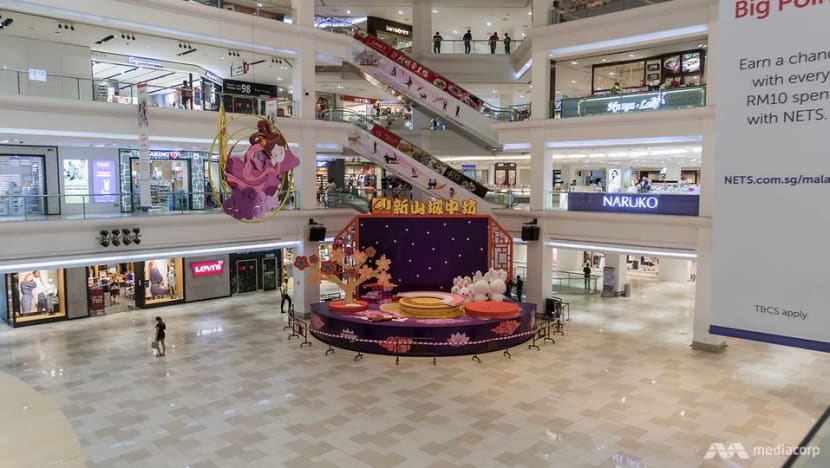
For those in the lower-income brackets, the possibility of a return to the original Movement Control Order (MCO), including the strict restrictions on travel and a shut-down of street-side food stalls and micro-businesses (for many, now their only source of food and income), there is a sense of impending doom.
When news that the Perikatan Nasional government was keen to impose a state of emergency, the nation held its breath.
From the streets of Kuala Lumpur to the rural fringes of the country, people wondered how they would survive, when it was unclear what an emergency declaration would entail and most people had the MCO as a reference point.
But what could the people do? They were powerless.
READ: IN FOCUS: How COVID-19 has disrupted the close links between Singapore and Johor
LISTEN: What next for Malaysian workers stuck there and Singapore businesses who hire them here?
Malaysia’s political sagas, largely deemed to be at the expense of the citizenry with scant consideration of their needs, have resulted in many having to fend for themselves instead of being able to rely on government welfare programmes or pandemic-response assistance schemes which do not necessarily reach those who need it the most.
Even as civil society organisations continue to scramble to mobilise food, supplies and aid to communities in need, and medical and police frontliners clock high numbers of virus infections themselves, there is more widespread trust in Dr Noor Hisham’s ability to handle the crisis than in prominent politicians.
The evolution of the tagline #rakyatjagarakyat (citizens help citizens) exemplifies this sentiment. Public sentiment has turned against politicians on all sides of the political divide.
READ: Commentary: Malaysia a kinder and stronger society six months into COVID-19 fight
THE AGONG BRINGS RELIEF
It was against this backdrop that the Agong’s repeated calls for the partisanship and politicking to end, for the good of the people, shone through.
The Agong’s response to Anwar’s request to reverse Pakatan Harapan’s timely loss of power was a call to focus on the needs of the people.
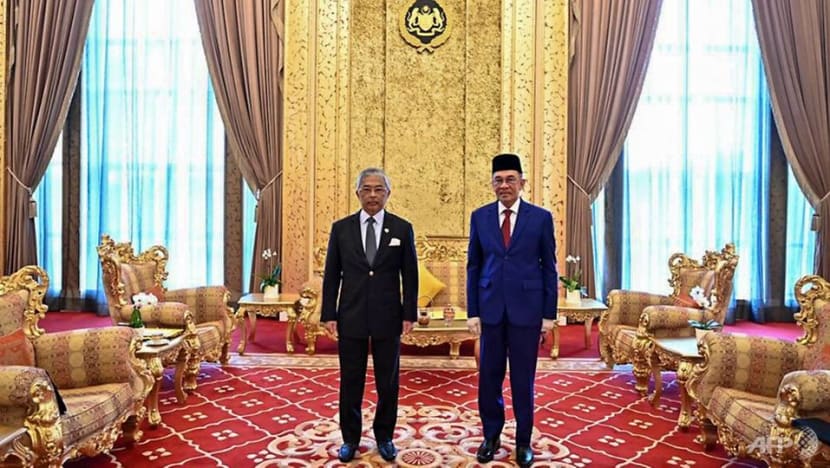
Muhyiddin’s proposal to impose a state of emergency (seen cynically by many as a move to prevent a vote of no-confidence in parliament) was also turned down by the Agong, after an urgently assembled Conference of Rulers.
In what was seen as a bid to partially appease Muhyiddin, however, the Agong’s statement reaffirmed confidence in Muhyiddin’s ability to guide the nation through the pandemic.
The Agong’s responses were well-received by most Malaysians, in contrast to the spike in anti-establishment comments on social media and amid an unusually high level of interest in federal politics by rural communities, who traditionally deem political drama to be beyond their ken.
READ: Commentary: Malaysian politics is going through a midlife crisis
However, popular opinion doesn’t spare the royal houses from scrutiny.
Up to this day, constitutional experts continue to debate the details and case histories of the relevant acts that delineate the decision-making powers of the royal houses, as concerns the Palace has overstepped its boundaries in rejecting the proposal of the Prime Minister and may have inadvertently set a precedent for the devolvement of more powers to the royals brew.
For now, the Agong played these two rounds ably and protected the public interest when it mattered. And for that, Malaysians are grateful.
But looking ahead, much will depend on whether the Malaysian government’s plans to fight COVID-19 succeed.
Dr Serina Abdul Rahman is a Visiting Fellow at the ISEAS-Yusof Ishak Institute.














